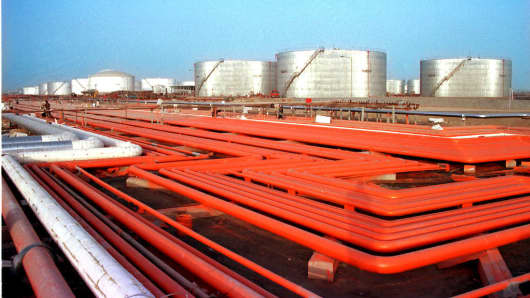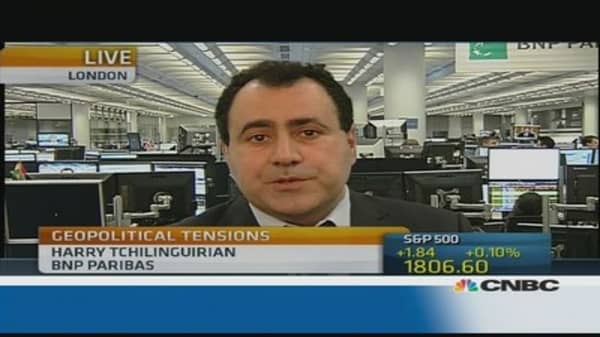Sunday's nuclear weapons deal may give the Iranian people a small taste of life without crushing global economic sanctions—but it hardly lets Tehran off the hook.
After a seven-year cash freeze and trade blockade, the U.S. and its allies agreed to ease up a bit on the coordinated sanctions that have choked off Iran's oil revenues, crippled the country' economy and left the government starved for cash.
The deal—in which Iran agreed to curb its efforts to build an atomic bomb—will free up some $7 billion of the $100 billion worth of frozen Iranian assets that will be allowed to flow back into the country.
But the mechanisms for shutting off the cash pipeline remain fully in place, allowing Western countries ample opportunity to tighten the economic noose again if Iran fails to live up to its end of the bargain.
The deal "provides some relief, but it's maybe 9 percent or 10 percent of the overall impact," Lawrence Korb, a senior fellow at the Center for American Progress and former defense department official, told CNBC. "So it does buy us time to get the agreement and to get them to realize the price they've been paying."
That price has been rising steadily since 2006, when the U.S., Europe and the United Nations began an ongoing, coordinated effort to freeze Iranian assets outside the country, blockade its economy and cut off its oil revenues. Those petrodollars—the main source of the country's foreign exchange—had provided as much as 80 percent of the government's revenues.
(Read more: Iran deal unlikely to help much at the gas pump)
In addition to freezing assets held outside the country, the sanctions also cut off the flow of cash in and out of Iran by barring banks from dealing with their Iranian counterparts. Bankers who ran afoul of financial barriers learned the hard way just how far U.S. regulators would go to enforce them. A year ago, HSBC agreement to pay nearly $2 billion to settle money laundering charges that included transactions with Iranian customers.
Starved for cash, Iran's economy has fallen into recession—the first contraction of gross domestic product in two decades, according to a report last month from the Congressional Research Service. The report noted that many businesses are failing and borrowers are defaulting on loans. Though the official unemployment rate is 13 percent, roughly 1 in 5 Iranians are out of work, according to the report.
Food and energy prices have surged. Prices began spiking in 2010 after the government ran out of cash to pay subsidies on food and gasoline that had kept prices below market value. Today, while the official inflation rate is about 40 percent, prices are reportedly rising much higher in the black market.
Without the cash to pay for them, drugs and medical equipment are in short supply.
As the economy sputters along on a dwindling supply of petrodollars, the value of Iran's local currency, the rial, has evaporated. The rial lost an estimated 80 percent in value against the U.S. dollar between March 2012 and March 2013 and is expected to continue to weaken, according to the World Bank.
Sunday's deal allows Iran access to some $4.2 billion in frozen assets over the next six months—just a portion of the $15 billion it will generate from selling roughly a million barrels of oil a day, according to the White House. The remainder of cash proceeds from customers will continue to accumulate in frozen overseas accounts.
"We expect the balance of Iran's money in restricted accounts overseas will actually increase, not decrease, under the terms of this deal," the White House said in its fact sheet outlining the terms of the deal.
(Read more: Crude pares losses as market digests Iran accord)





